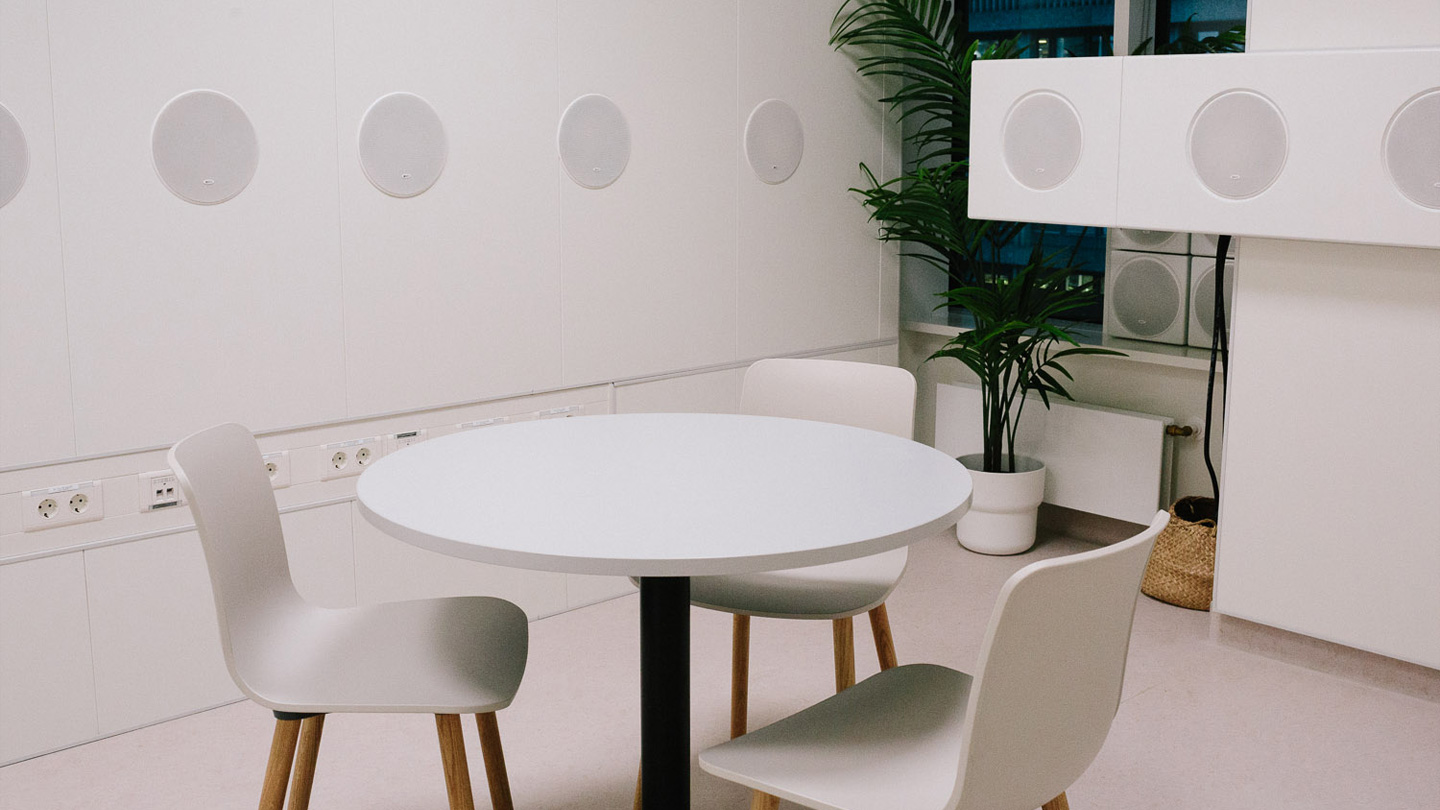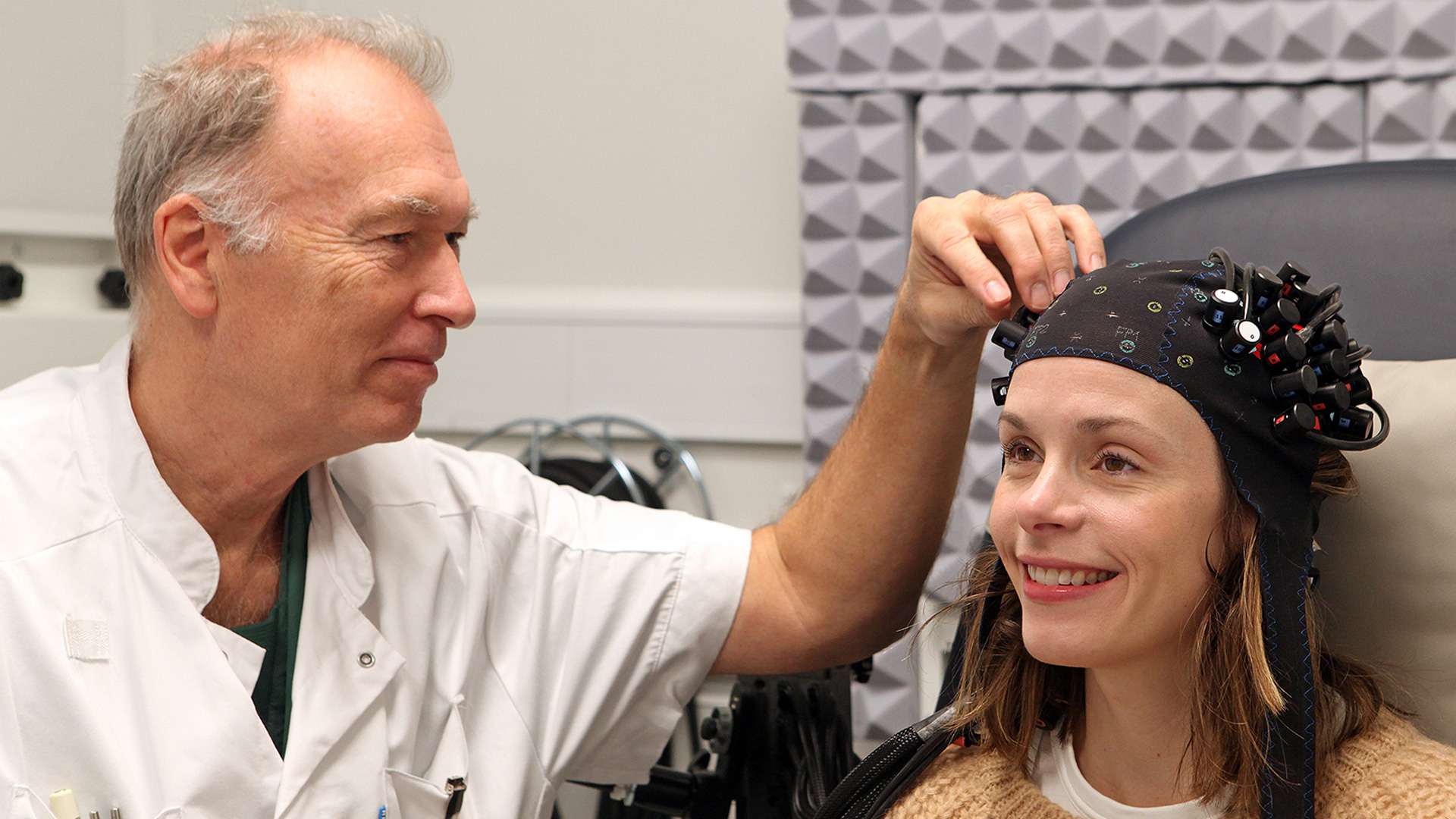Teaching in courses:
We believe that by recognizing the cross-disciplinary disconnects between engineers and clinicians and by working to remove these disconnects through the translation of research between DTU, the Copenhagen University Hospital, and our industrial collaborators, opportunities for improving the treatment of hearing impairment will emerge. We are especially well-suited for this cross-disciplinary work, given that we spend 50% of our time at DTU within the Hearing Systems Section and 50% of our time immersed among clinicians and their patients at the Copenhagen Hearing and Balance Center (CHBC) at Rigshospitalet. In this group, we are ultimately interested in improving the quality of life for hearing-impaired individuals. To accomplish this, we engage in both basic and applied research to better understand hearing impairment and how we can use technology to treat it.
Speech and spatial perception
In this line of research, I am interested in investigating how hearing device technologies influence speech and spatial perception. On the basic science side of the spectrum, my focus lies in understanding how hearing-impaired individuals understand speech in realistic, noisy environments—for example, in restaurants, classrooms, or in meeting rooms. On the more applied side, I am interested in understanding how hearing device technologies can be designed to improve speech and spatial perception in these situations. One key aspect I am particularly interested in is bringing more realism and ecological validity to the clinic so that clinicians have access to assessment tools that better align with the experiences patients report having in the real world. In this context, I am driving several projects that capitalize on the existence of our Spatial Hearing Lab at CHBC, which I designed and built together with a team of experts in hardware and software solutions for spatial audio (Sonible, Graz, Austria). The Spatial Hearing Lab contains a state-of-the-art loudspeaker array consisting of 41 individual loudspeakers that have been embedded within the walls and ceiling of an otherwise ordinary clinical room that has been acoustically treated. This space, and the projects that are set up to utilize it, are transforming spatial hearing diagnostics for CHBC’s patients, providing surgeons, doctors, and audiologists with information about spatial hearing which they, until the existence of this lab, have not had access to. For example, we are looking at optimizing the fitting procedures for bimodal listeners to achieve better spatial hearing, implementing more ecologically valid speech-in-noise testing to validate hearing aid fittings and to assess candidacy for a cochlear implant, and evaluating localization ability in patients with single sided deafness who receive a cochlear implant. The connecting theme is to help clinicians access modern technology within the field of spatial audio so that they are better equipped to help their patients obtain better outcomes with their hearing devices.

Assessing and treating hearing loss
A second research stream revolves around the assessment of hearing loss on everyday life and the potential impact of treating—or not treating—it. The focus is on identifying other facets of life or hearing than what has traditionally been considered but that nonetheless may be impacted by hearing loss, including, for example, the potential development of cognitive decline or, perhaps relatedly, behaviors like social participation. I am particularly interested in using novel technologies like hearing device data logging and ecological momentary assessment (EMA) to more accurately assess the functional impacts of impairment, and of the hearing devices used to treat it, in the real world. Other technologies are also interesting in this context, including, for example, the use of pupillometry as a proxy for measuring listening effort or novel approaches in electroencephalography for measuring suprathreshold deficits. Importantly, I believe these technologies can be uniquely integrated into clinical practice to compliment what is currently done, ultimately improving everyday clinical care for the individual patient by providing a more well-rounded picture of a patient’s hearing abilities and experiences. Taken together with the potential scaling that is possible in our Danish healthcare system, we are uniquely positioned at CHBC to uncover the functional consequences of hearing loss, and how this can potentially be altered through the treatment of it.

